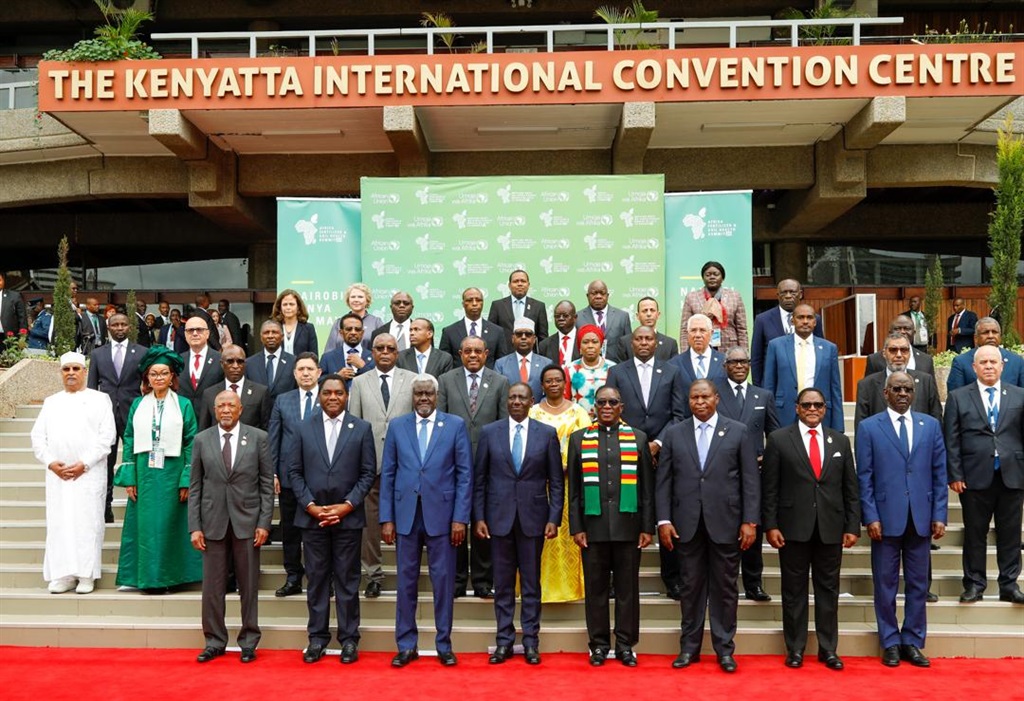
- African countries want to provide at least 70% of smallholder farmers with fertiliser in the next 10 years.
- Africa's average consumption rate of fertiliser stands at 18kg/ha, compared to the global consumption rate of approximately 135kg/ha.
- AU member states have been urged to fully utilise the Centre for Fertiliser Development, which is located in Zimbabwe.
African heads of state meeting in Kenya on Thursday vowed to triple production and distribution of certified-quality organic and inorganic fertilisers by 2034.
Their intention was included as part of the Nairobi Declaration at the 2024 Africa Fertiliser and Soil Health Summit.
Through this initiative, they said they want to "improve access and affordability for smallholder farmers".
In their declaration, they said this would be done through local production and blending of mineral fertiliser, with locally available resources.
"We commit to making [fertiliser] available by 2034 to at least 70% of smallholder farmers on the continent through targeted agronomic recommendations for specific crops, soils and climatic conditions," reads the declaration.
In 2006, African countries signed the Abuja Declaration on Fertiliser for the African Green Revolution.
The declaration then identified the critical need to increase fertiliser use to stimulate agricultural productivity growth to end hunger and poverty in Africa.
In 2014, the Comprehensive Africa Agriculture Development Programme Malabo Declaration was adopted, in which African Union member states agreed to work towards inclusive agricultural transformation.
READ | Worst drought in four decades cuts Zimbabwean maize crop by 72%
This week, in Nairobi, delegates noted there were "persistent and long-term challenges in implementing commitments in the various declarations".
Since the Abuja declaration, fertiliser use in Africa has not progressed as planned.
The 2024 declaration states:
The global fertiliser consumption rate is approximately 135kg/ha.
When Russia's invasion of Ukraine started, African countries' grain security was compromised.
There were efforts, such as the Black Sea Grain Initiative, but Russia would later pull out and start its own process of gifting African countries fertiliser and grain.
That proved how vulnerable the continent was, and heads of state unanimously raised concern that, while Africa produced approximately 30 million metric tons of mineral fertiliser each year, most of it was exported outside the continent.
The majority of AU countries were "still over-dependent on imported fertilisers, especially non-phosphate-based fertilisers, which expose Africa to external market shocks and price volatility".
ALSO READ | Kenyan agriculture minister faces axing over 'fake fertiliser'
In his opening address, AU Commission chairperson Moussa Faki Mahamat said the African Centre for Fertiliser Development, based in Zimbabwe, was under-utilised.
"Some African countries produce fertilisers, but we depend mostly on imported fertilisers, making them very expensive for our farmers.
"Yet the African Centre for Fertiliser Development, based in Zimbabwe, has been in existence since the 1980s.
"We must optimise the use of such existing continental assets to boost local fertiliser production and deliver quality fertilisers to African farmers at affordable prices," he said.
The summit was held under the theme: We Must Listen To The Land.
The News24 Africa Desk is supported by the Hanns Seidel Foundation. The stories produced through the Africa Desk and the opinions and statements that may be contained herein do not reflect those of the Hanns Seidel Foundation.




 Publications
Publications
 Partners
Partners


























